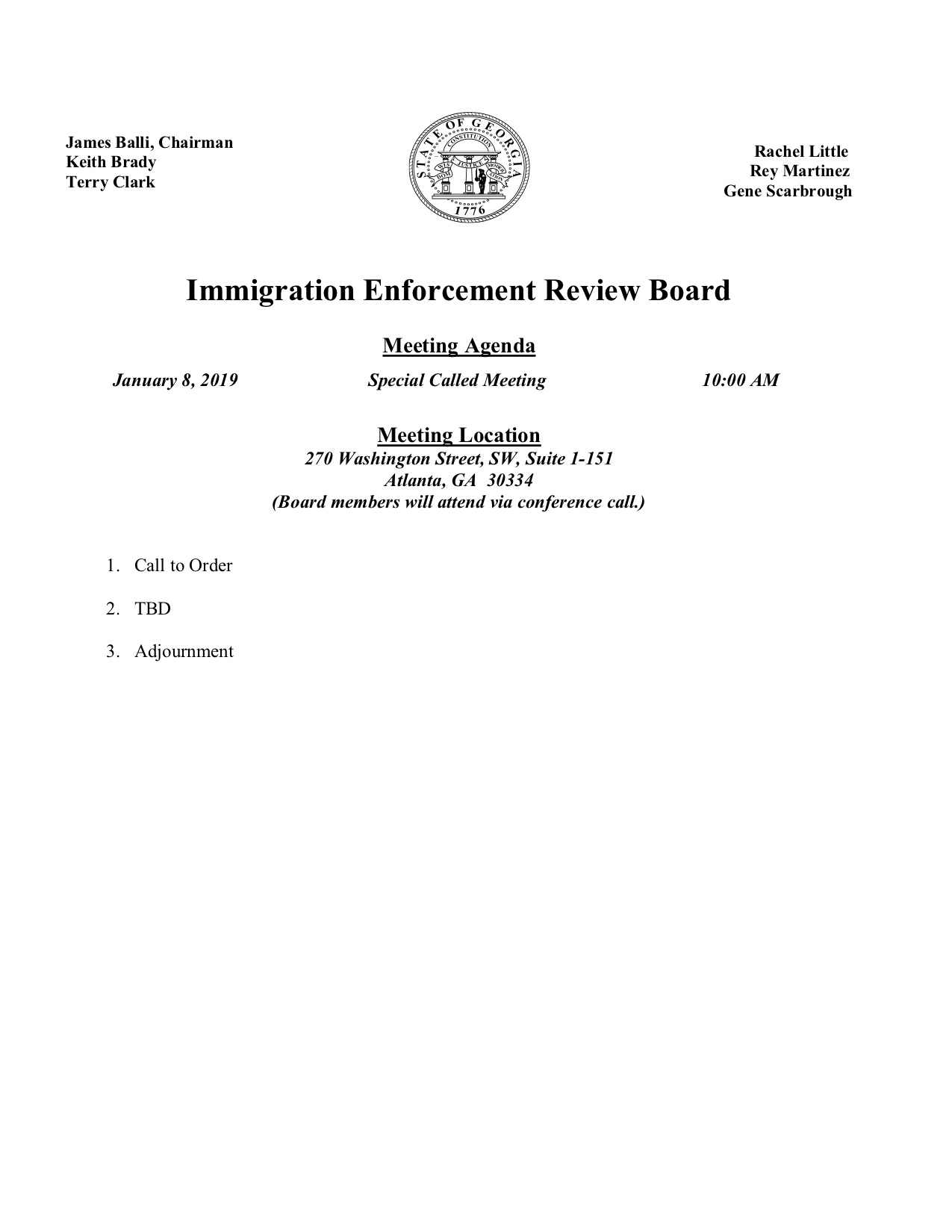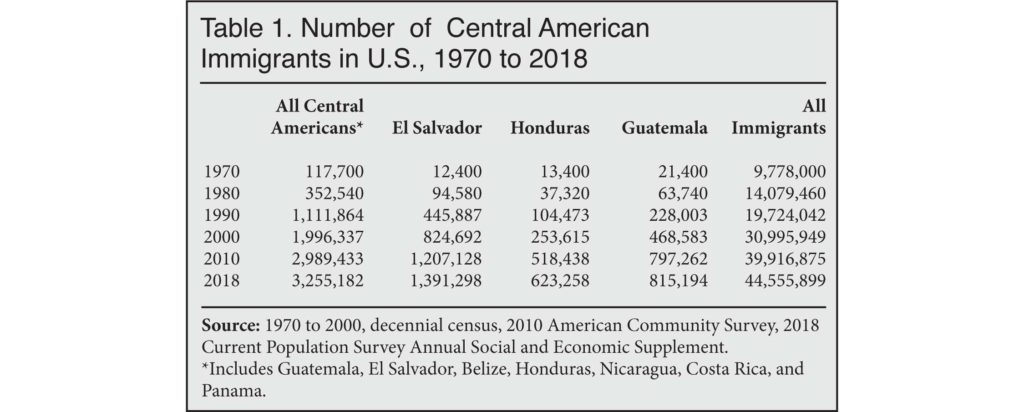
DDS: “A Georgia DL/ID is not proof of lawful status in the U.S. …”
Almost on the bottom.
looking for a better life • news and pro-enforcement opinion
By Bill Buckler

DDS: “A Georgia DL/ID is not proof of lawful status in the U.S. …”
Almost on the bottom.
By Bill Buckler
By Bill Buckler
April 15, 2018
The paper reported April 12:
Georgia House Speaker David Ralston delayed the end of this year’s legislative session past a midnight deadline so lawmakers could vote on a bill to allow speeding ticket cameras in school zones.
The bill was pushed by Ralston’s son, a lobbyist for an Arizona-based company, American Traffic Solutions, that sells the camera systems to local governments.
…
Ralston and Lt. Gov. Casey Cagle, the president of the state Senate, agreed to continue working past midnight to allow the House to approve the bill after it had passed the Senate a few minutes earlier, said Kaleb McMichen, a spokesman for Ralston, a Blue Ridge Republican.
In contrast, Ralston refused to allow a vote on a public safety bill in the GOP-dominated House before ended its annual session on March 30. Corporate-funded anti-borders groups took credit for the defeating the bill, which would have required state officials to notify federal immigration-enforcement officers of illegal migrants in the state’s jails.

“We ran out of time before we had finished all the bills that were worthwhile,” said House Majority Whip, Christian Coomer. “Other bills took priority and SB452 wasn’t called before the clock struck midnight,” he told the liberal Atlanta Journal-Constitution newspaper. Read the rest here.
By D.A. King

IERB complaints: responses to responses
1) The 1982 SCOTUS Plyler v Doe decision made us do it:
Plyler v. Doe has essentially guaranteed a right to pursue a high school diploma to all students (children) regardless of immigration status. It applies to K-12 education.
An easy to read and accurate synopsis: Plyler v. Doe, 457 U.S. 202 (1982), was a case in which the Supreme Court of the United States struck down both a state statute denying funding for education to undocumented immigrant children and a municipal school district’s attempt to charge undocumented immigrants an annual $1,000 tuition fee for each undocumented student to compensate for the lost state funding.[1] The Court found that any state restriction imposed on the rights afforded to children based on their status as immigrants must be examined under an intermediate scrutiny standard to determine whether it furthers a “substantial” government interest.
The application of Plyler v. Doe has been limited to K-12 schooling. Other court cases and legislation such as Toll v. Moreno 441 U.S. 458 (1979) and the Illegal Immigration Reform and Immigrant Responsibility Act of 1996[2] have allowed some states to pass statutes that deny undocumented immigrants students eligibility for in-state tuition, scholarships, or even bar them from enrollment at public colleges and universities.
Plyler v Doe applies to admittance, enrollment and education of illegal alien students in K-12 . It does not provide for any education of parents of students. Neither does it mean that school systems can or should provide any public benefit to parents (adults) in the name of furthering the education of the child/student. The argument that parents of illegal aliens are somehow exempt from proving eligibility for public benefits because of Plyler v Doe is absurd. Do we also exempt parents from proving work eligibility under Georgia’s E-Verify laws? Are parents of illegal aliens excluded for the affidavit process in 50-36-1 and 13-10-91 because they have children in Georgia K-12 schools? (No).
The USDOE has distributed guidance letters which are linked below. Although many of the responses from Georgia school districts cite Plyler v Doe and these letters as evidence of the legality of adult education for already enrolled K-12 students, the letters all clearly address enrollmentof K-12 students, not adult education.
The (English) guidance documents:
http://www.ed.gov/about/offices/list/ocr/letters/colleague-201405.pdf
http://www.ed.gov/about/offices/list/ocr/docs/qa-201405.pdf
http://www.ed.gov/about/offices/list/ocr/docs/dcl-factsheet-201405.pdf
Lastly, the argument that verifying the eligibility/immigration status of parents for public benefits or not providing illegal aliens parents (adults) of K-12 students language classes hinders the education of the child can be expanded to say that we cannot verify the legal status of the parents for a teaching or contractor job in the school system and that use of the E-Verify or SAVE system aimed at a parent is a “civil rights violation” or somehow damages the child’s education. Taken to extremes, use of the E-Verify system for parents of any or all Georgia K-12 students could be said to hinder the education of an illegal alien’s child because the parent cannot lawfully be employed. Shorter: The Plyer v Doe argument is intended for people who do not know the law.
2) Title lll made us do it and authorizes English classes for illegal alien parents of K-12 students already enrolled in Georgia’s school system.
I do not dispute that there is language in Title lll concerning parents and English language assistance. But partial quoting of Title lll without noting the federal requirement that all programs be in compliance with individual state law is incomplete and deceptive.
I insert a link to Title III text here
Title III — Language Instruction for Limited English Proficient and Immigrant Students
Please note Section 3116 Local Plans “(a) PLAN REQUIRED – Each eligible entity desiring a subgrant from the State educational agency under section 3114 shall submit a plan to the State educational agency at such time, in such manner, and containing such information as the State educational agency may require.
(b) CONTENTS – Each plan submitted under subsection (a) shall —
…(1) each local educational agency that is included in the eligible entity is complying with section 3302 prior to, and throughout, each school year;
(2) the eligible entity annually will assess the English prof iciency of all children with limited English proficiency participating in programs funded under this part;
(3) the eligible entity has based its proposed plan on scientifically based research on teaching limited English proficient children;
(4) the eligible entity will ensure that the programs will enable children to speak, read, write, and comprehend the English language and meet challenging State academic content and student academic achievement standards; and
à(5) the eligible entity is not in violation of any State law, including State constitutional law, regarding the education of limited English proficient children, consistent with sections 3126 and 3127.
And Section 3126 LEGAL AUTHORITY UNDER STATE LAW.
à“Nothing in this part shall be construed to negate or supersede State law, or the legal authority under State law of any State agency, State entity, or State public official, over programs that are under the jurisdiction of the State agency, entity, or official.
SEC. 3127. CIVIL RIGHTS.
Nothing in this part shall be construed in a manner inconsistent with any Federal law guaranteeing a civil right. Use of Funds Requirements in OMB Circular A – 87
3) Title lll and Title l made us do it:
“Translation and Interpretation for English Learners – Requirements under Title VI of the Civil Rights Act of 1964 Related to National Origin Discrimination and Use of Funds Under Title III, Part A andTitle I, Part A of the ESEA.” See linked info ( for some reason, the link must be pasted into your browser to open the fed document).https://www2.ed.gov/programs/titleiparta/titleititleiii421.pdf
“Office of Management and Budget (OMB) Circular A – 87 requires that the use of funds for a specific purpose be: necessary and reasonable for the proper and efficient performance and administration of the program; and authorized and not prohibited under State and local laws or regulations.
—
By D.A. King

__
Email received from Audits and Accounts, December 31, 2018 at 3:38 PM:
Good Afternoon,
The Immigration Enforcement Review Board has scheduled a Special Called Meeting for Tuesday, January 8, 2019 at 10:00. The members will be holding this meeting via conference call. A conference call line will be set up in Room 1-151 at the Georgia Department of Audits and Accounts if you wish to hear the meeting in person. The address for the Georgia Department of Audits and Accounts is listed on the agenda. The building is located at the corner of Trinity Avenue and Washington Street. Please enter the building on the Trinity Avenue side. You will need to go through security and show a valid ID to enter the building. I have attached a tentative agenda, but will resend.
Thank you,
Carol Schwinne
| Carol G. Schwinne| DirectorAdministrative Division
Georgia Department of Audits and Accounts 270 Washington Street, S.W., Suite 1-156 Atlanta, GA 30334 Office: 404.463-2670 | schwinne@audits.ga. gov |
|
| audits.ga.gov |
mail.audits.ga.gov made the following annotations on 12/31/18:
NOTICE: This e-mail (including attachments) may contain information that is confidential and legally privileged. If you are not the intended recipient, you are hereby notified that you have received this document in error and that any review, dissemination, distribution or copying of this message is strictly prohibited. If you have received this in error, please notify us immediately and delete the message.
Thank you for your cooperation.
__
***Note: More on the IERB here and here.

By D.A. King
Recent news coverage of a caravan from Central America hoping to enter the United States illegally has raised interest in the number and characteristics of Central Americans in the country. A new analysis by the Center for Immigration Studies of the latest Census Bureau data, which includes legal and illegal immigrants, shows that the size of the Central American immigrant population (from Guatemala, El Salvador, Belize, Honduras, Nicaragua, Costa Rica, and Panama) has grown enormously in recent decades. It also shows immigrants from the region often struggle with high rates of poverty and welfare use and low average incomes. The reason this is the case is not due to an unwillingness to work. In fact, Central Americans (ages 18 to 64) are slightly more likely to hold a job than native-born Americans. Rather their high rates of poverty and welfare use are due to their low levels of education, which, as their numbers have soared, have declined dramatically relative to natives.
Among the findings:

By Bill Buckler

Fast Fact:
By D.A. King
By D.A. King

Jeffrey Miron is director of economic studies at the Cato Institute and the director of undergraduate studies in the Department of Economics at Harvard University.
Cato Institute
“President Donald Trump’s recent tweets against open borders come as no surprise. Indeed, even fervent immigration advocates worry that open borders would lower the wages of low-skilled natives, erode national security, and overburden the social safety net. Trump doubled down, tweeting that he would be “willing to ‘shut down’ government” unless Congress approves funding for a border wall with Mexico.
Trump, however, has it exactly backwards: The solution to America’s immigration problems is open borders, under which the United States imposes no immigration restrictions at all. If the U.S. adopts this policy, the benefits will far outweigh the costs.
Legalize ALL immigration
Illegal immigration will disappear, by definition. Much commentary on immigration — Trump and fellow travelers aside — suggests that legal immigration is good and that illegal immigration is bad. So, legalize all immigration.
America has nothing to fear, and much to gain, from open borders.
Government will then have no need to define or interpret rules about asylum, economic hardship, family reunification, family separation, DACA (Deferred Action for Childhood Arrivals) and so on. When all immigration is legal, these issues are irrelevant.
The question of fairness about who enters first — those who waited in line or those who entered illegally — disappears. Amnesty for existing illegal immigrants also becomes a non-issue. Or an open borders policy could require anyone who entered illegally to exit the country — for exactly five minutes — and then re-enter legally.
Think about the money we could save and make
Expenditure on immigration enforcement would shrink to nothing, because open borders means no walls, fences, screening at airports, ICE (Immigration and Customs Enforcement), deportations, detention centers or immigration courts. A 2013 report estimated that immigration enforcement cost more than $18 billion annually, and standard indicators suggest costs have grown further since then.
Last year, U.S. employers filed over 336,000 petitions for H1-B visas for highly skilled foreign workers, but only 197,129 were approved. Complicated visa rules – for tourists versus job-seekers, STEM (science, technology, engineering and math) workers versus agricultural laborers, and students versus non-students – would all vanish. This would save resources and give employers new access to talented human capital.
The time people waste re-entering the country will evaporate. How often do you face long delays when entering Oklahoma from Texas? Never. But how often do you experience delays when you leave other countries for the United States? Almost always. One study pegs the cost of wait times at the U.S.-Mexico border alone to be more than $12 billion a year.
Economic efficiency will increase both in the USA and in immigrant-sending countries, because different kinds of labor will be better matched around the world to their most productive activity. This benefits the immigrants who earn higher incomes, but also U.S. consumers who face lower prices for imported goods and services. One academic study predicts that if borders were open everywhere, world gross domestic product could be twice its current value.
They will send their best…” Read the rest here.
By D.A. King


Contact info for the Georgia delegation in Washington DC here. Just click on their name.